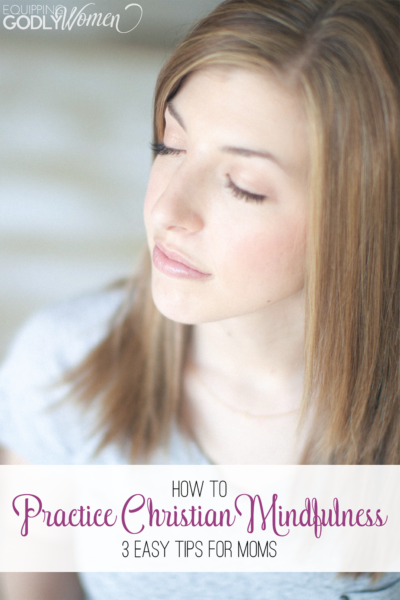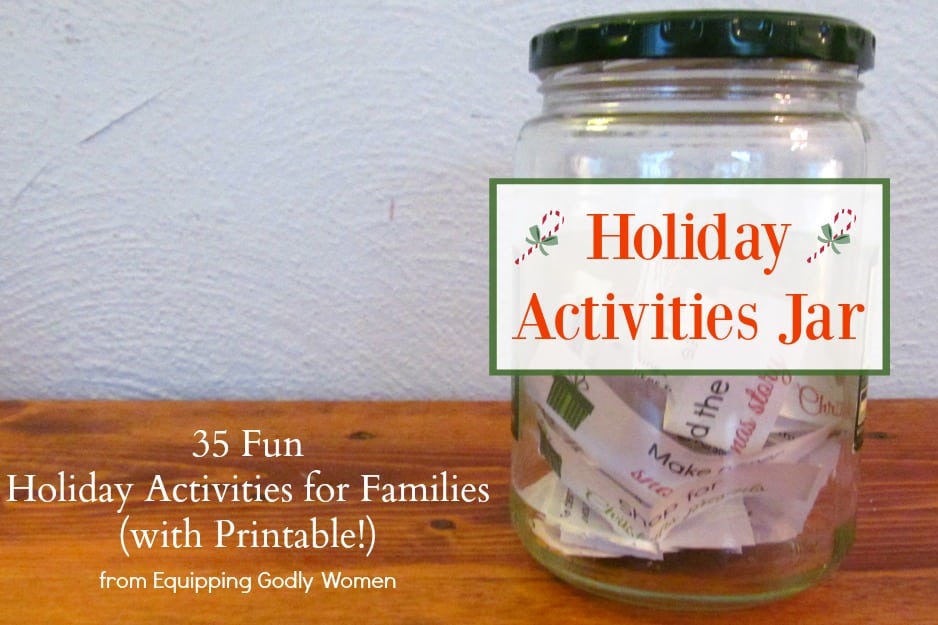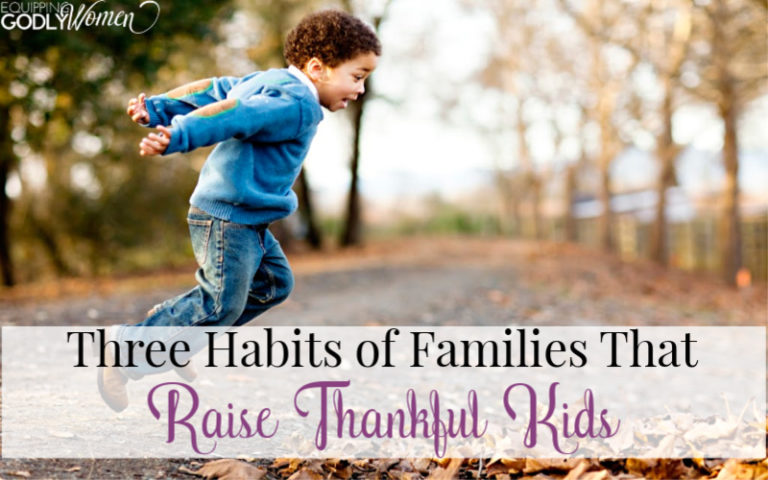How to Practice Christian Mindfulness: 3 Easy Tips for Moms
Have you ever wondered how to practice mindfulness in a Biblical way? In this post, Ellie Hunja is sharing 3 Christian mindfulness practices that will help overwhelmed moms feel more present and experience God more fully.
 Did you know that we spend 47% of our waking hours thinking about something other than what we’re currently doing?
Did you know that we spend 47% of our waking hours thinking about something other than what we’re currently doing?
When I look at my own life as a parent, that statistic – shocking as it sounds – is actually pretty realistic. Even as I write this article, I’ve placed a random order from Target and googled dinner options in the name of productivity. I run my to-do list through my mind while stacking blocks with my preschooler. I scroll Instagram while I’m watching a movie with my spouse.
I could call this “multitasking” but, honestly, it’s often a lack of presence and attunement. We’re a distracted culture, and our brains have nearly forgotten how to “single-task”. Yet, despite what we may think, we’re not actually getting more done this way: we’re less productive and less happy, which is clearly a lose-lose.
So how do we fix it?
Because we’ve gotten so used to dividing our attention, actually being present requires strengthening our minds. Practicing mindfulness is the mental equivalent of a trip to the gym, helping us grow the “muscle” that allows us to experience what God has for us in the here-and-now moments of our lives.
[thrive_leads id=’23168′]
What is mindfulness?
Mindfulness is defined as:
“a mental state achieved by focusing one’s awareness on the present moment, while calmly acknowledging and accepting one’s feelings, thoughts, and bodily sensations.”
In two words, mindfulness is a non-judgemental presence. We’re attuned to our present experience, paying attention without rushing to tell ourselves how we “should” feel about it. In this way, we can notice strong emotions we’re experiencing without allowing ourselves to be ruled by them, or notice unhelpful thoughts without feeling shame.
Formally, practicing mindfulness involves various kinds of silent meditation exercises. (I’ll include 3 practical examples in the “How” section.)
Informally, it means intentionally acknowledging thoughts and emotions that may be distracting us from the present, and then returning our attention to what’s right in front of us.
But how does this fit in with our walk with Christ?
Defining Christian mindfulness
Christian mindfulness invites us to add “breathing room” into our relationship with God.
What do you picture when you think of spending time with God? Many of us were taught a model of quiet time that includes reading the Bible and praying – both of which are vital practices for our spiritual health. But I often find that my prayer times focus on praising God and voicing my requests, without much room for listening and reflection.
As we learn how to practice mindfulness, we begin to truly “pray without ceasing” by breaking out of autopilot and paying attention to what God is doing in each moment. We create space to slow down and truly hear from God, instead of crowding out His voice with the constant busyness of our minds. We become grounded and grateful in the present, rather than missing the small whispers of God’s love and companionship that are woven throughout our days if we take the time to notice them.
Related Reading: Christian Virtue & Mindfulness
How can Christian mindfulness help me as a mom?
As parents, we are especially prone to being swept out of the present moment by both our thoughts and emotions.
“Mom brain” often makes us more forgetful and absent-minded, and the mental load of motherhood causes our minds to constantly race. But feeling mentally overwhelmed and distracted isn’t a moral failing; the truth is, so much in our household depends on our ability to multitask. (In a perfect world, we’d all have access to the help we need to not feel so overburdened – but that’s a different topic for another day.)
Emotionally, it’s hard to step off the rollercoaster of our children’s ups and downs and meet their extreme emotions with steadiness and calm. Like our mental overwhelm, this too is nothing to be ashamed of. We’re wired to be more impacted by our kids’ highs and lows than anyone else’s; that unique connection is what helps us care for them well. Unfortunately, it’s also what drains us when those emotions make us spin out of control.
Together, these mental and emotional factors make it easy to lose touch with our own thoughts, feelings, interests, and even sense of self.
Learning how to practice mindfulness helps us to get out of our heads and off of the roller coaster. As we learn the practice of mindful meditation, it becomes easier in everyday moments to press pause and feel less overwhelmed by our habitual thoughts and emotional triggers.
Being present for our kids and in control of our emotions sounds great, right? So let’s learn how to practice mindfulness, with Christ as our anchor.
Related Reading: What Does the Bible Say About Self-Care (A Christian Perspective)
How to practice Christian mindfulness
Here are three exercises you can practice as an introduction to Christian mindfulness. All three of these help build the mental “muscle” that helps us focus our attention on the present at any given moment.
1. Body Scan
To complete a mindful body scan, follow these steps, courtesy of Calming Grace blog:
- Sit down comfortably and close your eyes.
- Begin to take deep, intentional breaths. Then, bring your attention to your feet.
- For a few seconds, just focus on your feet and notice the sensations you can feel there.
- Then, slowly bring your attention up to each part of your body: to your legs, torso, back, arms, neck, and face, all the way to the top of your head. Spend time noticing how each part of your body feels before you move on to the next part.
“This body scan exercise is helpful for grounding in the present moment. It should help you listen to your body and recognize what it needs right now. Also, as you notice each part of your body, you can thank God for it. Praise God for creating each part of your body, and for designing all the details so intricately.”
Dr. Irene Kraegel, author of The Mindful Christian, explains how body scan meditation is a profoundly spiritual practice:
“Body scan meditation allows you the opportunity to connect with yourself in the present moment through awareness of your body—to stop and listen to what your body is communicating to you. God made us as physical beings, not just mental and emotional beings. We can assume that this was intentional—that there is value in paying attention to this part of God’s creation that is the body. Your body, along with the rest of you, reflects God’s image (Gen. 1:27) and is a “temple of the Holy Spirit” (1 Cor. 6:19). You look like God and God lives within you. If you want to experience God, experiencing your body is an excellent place to begin.”
2. Grounding exercises
Grounding exercises are a powerful tool as we learn how to practice mindfulness. They teach us how to be anchored in the present through the use of our five senses and, like a body scan, can have a deeply calming effect.
For a wonderful, Christ-centered grounding exercise via Seattle Christian Counseling, click here.
3. Breath prayers
Breath prayers are one of the simplest ways to practice Christian mindfulness, and the practice I find myself turning to most often in the ups and downs of my days.
To pray a breath prayer, I choose a small phrase that my soul needs at that moment. The other day, I was feeling anxious about getting my work tasks done while also caring for my son, and I noticed my heart rate increasing. I chose the phrase “God is here” to steady myself in His presence.
My breath prayer looked like this:
- [Inhale] “God” [Exhale] “is here.”
- [Inhale] “God” [Exhale] “is here.”
I repeated this phrase in my mind alongside deep breaths until I felt my heart rate slow and my mind gain distance from the anxious thoughts.
Dr. Kraegel writes:
“The breath is a powerful anchor for the attention and can serve as an intimate metaphor for God’s presence in the moment. With each breath, we are reminded that our moment-to-moment existence rests entirely in God’s hands – that each moment of our life is a gift, not of our own making. We have no control over whether the next breath will come. Each breath also can remind us of the creation Breath that God breathed into dust…”In the beginning”… to give us life. This Breath of the Holy Spirit continues to breathe in us and transform us. When we experience the breath, we have the opportunity to remember that God is present, that God’s Spirit dwells in us, that we receive each moment as a gift from Him.”
Related Reading: Guides for Christian Mindfulness Practice
My favorite thing about Christian mindfulness
Want to know the best part about practicing Christian mindfulness as a parent?
We have the best helpers!
Our children naturally occupy the present. They dive into play with their full body and soul, and when they’re talking about an interest of theirs, you can see in their eyes that it’s lighting up their whole world. They live in this beautiful space that I wish I could get back to more regularly, where productivity and multitasking don’t even cross their minds, and there’s no phone to unlock every 3 minutes to be sure they didn’t miss anything.
So, whenever I can, I try to enter that world – even if it’s just for 5 or 10 minutes at a time. I lock eyes with my daughter as she tells me a funny story from school, laughing from my belly like she does. I sing and do the hand motions to my son’s favorite nursery rhyme for the 8th time, renewed by the look of joy on his face.
By the end of it, my head is clearer. My shoulders have relaxed. I don’t feel as overwhelmed because, for a moment, I’ve given my heart and mind a rest from rehearsing my mental to-do list. I’ve entered fully into the present that God has blessed me with, and the result is a gift to my children and to me.
Christian mindfulness helps me remember what truly matters
It’s easy to lose our sense of self in motherhood, especially if we’re used to defining ourselves by our achievements or productivity levels. Sometimes I long to feel like my former self… when I had time to be a good partner AND employee AND friend and wasn’t scraping by in each of those categories.
But mindful parenting helps me change my definition of productive – not as a feel-good technique, but as a genuinely more accurate appraisal of the impact of my day. If our to-do lists included things like “really listened to my daughter’s silly story when I wanted to zone out” or “responded calmly when I wanted to yell,” we might realize we’ve accomplished more than we thought, especially when we view it from an eternal perspective.
Christian mindfulness is accepting an invitation from God
I’ll close with this quote from Dr. Kraegel:
“Mindfulness is the practice of praying without ceasing – being with God during each moment of our day. Mindfulness is a method of watching over our hearts and minds so that we are not fooled by inaccurate thoughts, so that we can maintain a clear perspective, and so that we can receive the good gifts that each moment has to offer. It is a method of opening ourselves authentically to God’s healing presence.”
[thrive_leads id=’23168′]
Have you ever tried a Christian mindfulness practice before? How do you think learning how to practice mindfulness could improve your days?

She is a wife, a mother of two, and a leader at her church, where her husband serves as an elder. She holds a Master of Social Work and is passionate about social justice and mercy ministry.








Wow Ellie, there are so many great practices packed in here! I know I can benefit from doing all of these more throughout the day, especially when I feel my anxiety rising or I have a hard time focusing. I’m going to check out that book!
I'm so glad this was helpful, Gina! I'm planning to read the whole book some time soon, too! So many gems. Wishing you the best as you build up that mindfulness muscle! I'm working on the same 🙂
This is a beautiful piece! My favorite part is "Christian mindfulness is accepting an invitation from God." I believe that when we calmly manifest the fruit of the spirit, we will also manifest righteousness.